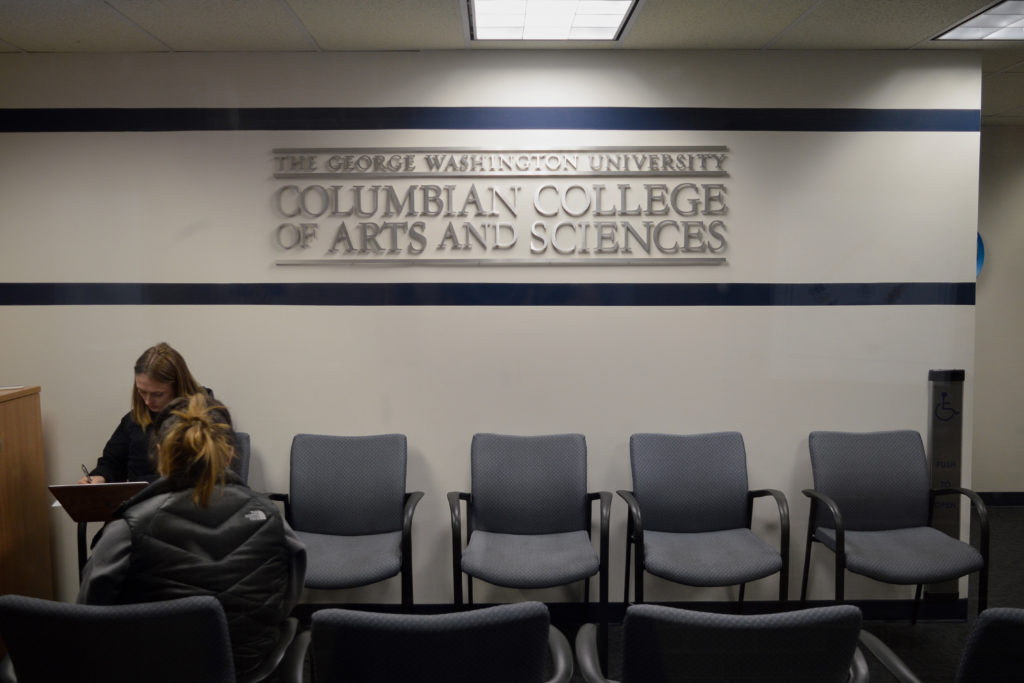Most academic advising offices will subscribe to a new online tool this fall allowing them to store advising notes and communicate more easily with students.
The University is in the process of expanding an online customer relations management system that was first implemented in some advising offices last fall, officials said. The tool currently allows for online appointment scheduling, but officials said the expanded version will help advisers keep tabs on students and provide a “centralized platform” to share across offices if a student transfers schools or declares another major.
“As we continue to focus on the student experience, a frustration that we’ve heard from advisers and students is the difficulty in keeping detailed notes about appointments, student concerns and academic progress,” Laurie Koehler, the senior vice provost for enrollment and the student experience, said in an email.
Koehler said officials plan to implement the tool in both undergraduate and graduate advising offices, except for those in the law and medical schools. Officials plan to train staff on how to use the tool over the “next couple months” ahead of the fall semester, she said.
She added that the tool was first installed in the Office of Undergraduate Admissions in 2015 to follow up with prospective students, and graduate admissions offices started using the platform “shortly after.” After the University was reaccredited last summer, officials noted the need for a “campus-wide” customer relations management system to more effectively engage with students.
“The CRM system provides a number of important tools which allow these offices to track interactions with prospective students, while also providing a robust platform that enables communication with prospects and applicants,” Koehler said.
The updates to the system come as the University has placed an increased focus on academic advising over the past year. Last spring, the Student Association issued a report finding that students lack personal connections with academic advisers, and student leaders created a set of guidelines in the fall setting expectations for academic advising relationships.
The University also made some changes in individual schools’ academic advising offices this semester, piloting a one-on-one advising system in the Columbian College of Arts and Sciences and penalizing students in the Elliott School of International Affairs who did not show up for advising appointments.
Academic advising experts said improved technology will enhance communication between advisers and students and help staff share information about students to other advisers more easily.
Dominic Castillejo, a senior academic adviser at the University of Miami, said his advising office uses the online customer relationship management system Navigate, a software that offers a chat service and integrated email. He said the system has made it easier for the office to communicate with students through both email and text message.
“This platform really serves as a tool to help advisers be more efficient in their messaging and distribution of information to students,” Castillejo said. “And it also serves as a single place, if done correctly, where students only have to go to one location online to schedule their appointments.”
He said the platform also allows advisers to keep both personal and shared notes about a student to use in one-on-one sessions or share with others if a student’s adviser changes.
Castillejo said online advising platforms can offer text messaging capabilities, allowing staff to text students reminders about appointments or send questions to groups. The technology helps advisers receive more “immediate” responses from students while ensuring they remember appointments, Castillejo said.
Kelly Johnson, an academic counselor at the University of Rochester, said digital access to advising notes can help staff better serve students who transfer internally between schools and switch advisers and improve their academic experiences.
“We need to make sure that students are on track and aren’t showing signs of withdrawal,” she said. “This can help us look at students as a group who, let’s say, have a GPA of 2 to 2.5 and reach out and see what we can do to make sure those students can do better.”





